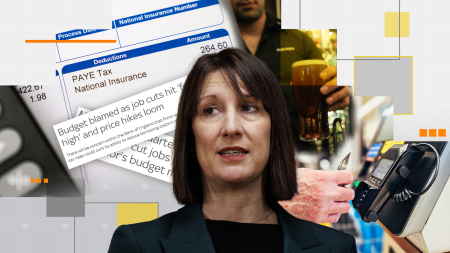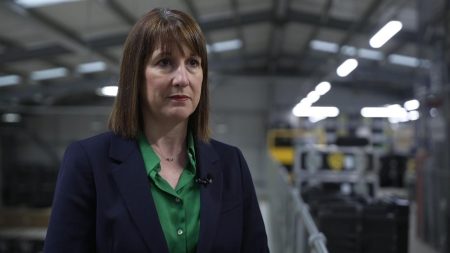Saving Money on Baby Formula: A Key to Reducing Household Bills
Parents in the UK can save up to £300 annually by shopping around for cheaper baby formula brands, according to a recent report by the Competition and Markets Authority (CMA). The watchdog highlighted that many premium brands cost significantly more than the weekly value of people’s benefits, making it difficult for families to afford essential items. This finding comes as part of the CMA’s final report on the surging prices of baby formula in recent years, which has placed a significant strain on households already grappling with the cost of living crisis. While the report acknowledges the potential savings, it stops short of recommending the overturn of bans on price promotions, citing government policies that encourage breastfeeding. However, the CMA has indicated its willingness to revisit this issue if requested by policymakers.
The report’s release comes nearly two years after Sky News exposed the desperate measures some families were taking to feed their babies during the height of the inflation crisis. Parents openly admitted to stealing baby formula to keep their children alive, as prices skyrocketed across the economy, driven largely by unprecedented energy costs. The CMA had previously reported a 25% increase in baby formula prices over the past two years, with just three companies—Nestle, Kendamil, and Danone—controlling a staggering 90% of the market. This lack of competition has meant that additional factory costs have been passed on quickly and in full to consumers, with little incentive for manufacturers to lower prices.
The CMA’s Recommendations for Fairer Prices and Better Choices
In an effort to address these issues, the CMA has put forward four main recommendations aimed at improving both choice and affordability for parents. One key proposal is the standardization of packaging to provide clear information on the nutritional sufficiency of all infant formula products. This would make it easier for parents to compare prices and make informed decisions without being misled by marketing claims. The watchdog also suggested extending the ban on advertising to include follow-on formula, a move that could help reduce pressure on parents to choose more expensive brands. Additionally, the CMA recommended allowing parents to use vouchers and loyalty points to purchase infant formula, a measure that could provide much-needed financial relief for families.
While these recommendations are a step in the right direction, the CMA acknowledged its limitations in addressing the broader issue of market competition. The watchdog has no powers to force an increase in the number of formula producers, which means the UK market will likely remain dominated by the same three companies for the foreseeable future. This lack of competition has been a significant factor in the rapid price increases, as manufacturers have little incentive to lower their prices without pressure from rivals.
The Broader Impact of Rising Baby Formula Costs
The issue of rising baby formula costs is not just a financial burden but also a deeply emotional and stressful challenge for many families. Parents have been forced to make impossible choices between essential items, with some resorting to extreme measures to ensure their children are fed. The emergence of a black market for baby formula, as revealed by Sky News, highlights the desperation felt by many families during the peak of the cost of living crisis. As prices continue to rise, the CMA’s report serves as a stark reminder of the need for urgent action to protect vulnerable households.
Next Steps and the Role of Policy Makers
While the CMA’s report provides valuable insights and recommendations, the responsibility for implementing meaningful change lies with policymakers. The UK government must carefully consider the CMA’s findings and work to create a more competitive market that prioritizes affordability and transparency. This could involve exploring ways to attract more manufacturers to the market or introducing measures to cap price increases. Additionally, policymakers must balance the encouragement of breastfeeding with the practical realities faced by many parents, who may not have the option to breastfeed exclusively.
In conclusion, the CMA’s report sheds light on the urgent need for reform in the baby formula market. By implementing the recommendations outlined in the report, policymakers can help reduce the financial burden on families and ensure that all parents have access to affordable and nutritionally adequate baby formula. As the cost of living crisis continues to affect households across the UK, it is crucial that action is taken to address these issues and provide relief to those who need it most. For now, parents are advised to shop around for cheaper brands and take advantage of any available vouchers or loyalty schemes to stretch their budgets further.
This breaking news story is being updated. Please refresh the page for the latest version.















